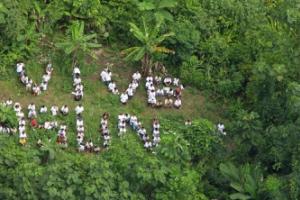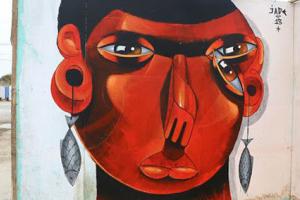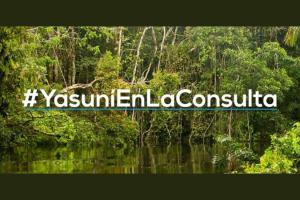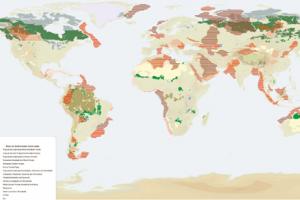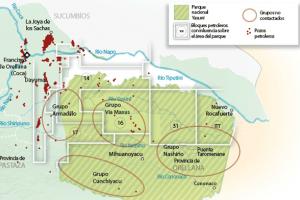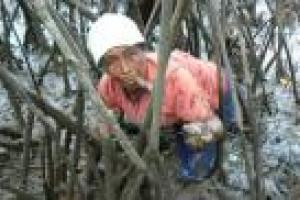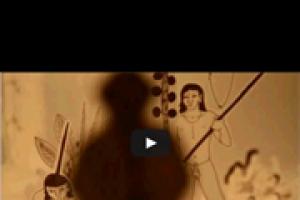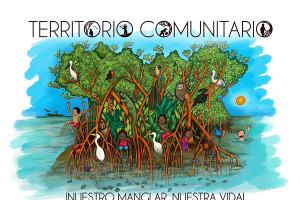Letter to the Inter-American Commission on Human Rightsurging it to call on the government of Ecuador to fully comply with the precautionary measures established for the protection of the life and personal integrity of members of Indigenous Peoples Living in Isolation in Ecuador, particularly the Tagaeri and Taromenane indigenous groups, who form part of the Waoroni people, as well as the territories they inhabit.
Ecuador
Other information
3 December 2013
In response to the government’s decision to abandon the initiative to leave the oil in the Ishpingo-Tambococha-Tiputini (ITT) block beneath Yasuní National Park untapped, and to begin drilling operations, a youth organization called YASunidos has launched a campaign to call for this decision be submitted to a popular consultation, as established by the constitution of Ecuador.
The campaign has met with strong support and given rise to a major mobilization aimed at collecting 600,000 signatures from Ecuadorian citizens in order to demand the popular consultation.
Bulletin articles
3 December 2013
Oil has been historically extracted disregarding the costs that the process entails to the local people and the environment. Thus oil extraction has become a direct cause of the deforestation of large areas of tropical forests where some of the world's most promising oil and gas deposits lie, degrading the forest as a whole through its impacts on water, air, wildlife and plants.
Bulletin articles
3 December 2013
The first steps
Bulletin articles
2 October 2013
Bulletin articles
30 July 2013
(Photo: C-Condem)
The décima is a poetic form that has been used for many years as a tool of protest by Afro-Ecuadorians, who keep this cultural traditional alive while denouncing the trampling of their rights by greedy and powerful interests like the shrimp farming industry and others that are destroying the mangroves.
Other information
30 July 2013
The Martín Pescador Centre, devoted to the marketing of products and the revaluation of the culture of the ancestral peoples of the mangrove ecosystem, is an initiative of the National Coordinating Committee for the Defence of the Mangrove Ecosystems (C CONDEM), comprising the people’s organizations that make up C CONDEM: grassroots organizations, fronts, federations and unions of communities devoted to artisanal fishing and gathering of products from the mangroves.
Other information
12 July 2013
Only available in Spanish -
Con este especial corto audiovisual, el CDES, a través de su Observatorio de Derechos Colectivos, pretende explicar cuáles son los peligros a los que se ven sometidos los Indígenas Asilados, Tagaeri y Taromenane, en su territorio de la selva Ecuatoriana. En estos críticos momentos, su vida depende en gran medida de que nosotros, la sociedad civil, seamos conscientes de los riesos que sufren e intentemos evitarlos. ¿Compartes el video?
Bulletin articles
30 June 2013
After the Ecuadorian president announced plans to carry out an evaluation on securing financing for the Yasuní-ITT project, reflecting a clear interest in oil drilling, the ‘Guardians of Yasuní’ initiative organized a vigil in defence of the national park and its forests. The organizers stated: “Sumak Kawsay (Living Well) is possible without oil, as has been demonstrated by the great diversity of life in Yasuní alongside the peoples who have coexisted with it for thousands of years. No amount of money can make it worth destroying this piece of paradise in Ecuador.
Bulletin articles
30 May 2013
The Huaorani, the last known group of Indigenous peoples still living in voluntary isolation in Ecuador in the Amazonian area of Ecuador known as Yasuni National Park and Biosphere Reserve are threatened by encroaching oil development, settlers and illegal loggers.
Bulletin articles
30 December 2012
At 9:00 a.m. on December 4, uniformed officers of the National Police set fire to the homes and crops of residents and families in Bilsa, located in the canton of Muisne in Esmeraldas province. This community has ancestrally inhabited this spot, where they make a living through gathering crabs and agro-ecological farming practices. The fact that they have lived here for more than 20 years means they have the right to legal title to the land in compliance with the provisions of the country’s Civil Code.
